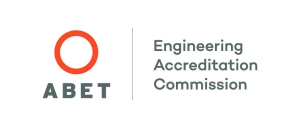Bachelor of Science in Engineering/Civil and Engineering/Chemical
Welcome to the Engineering program at West Virginia State University (WVSU). We are very excited and pleased to let you know that our Bachelor of Science in Engineering/Civil and Engineering/Chemical program were approved by West Virginia Higher Education Policy Commission and Higher Learning Commission (HLC).
At WVSU you learn from caring and knowledgeable faculty. The 15:1 student-to-faculty ratio means you receive one-on-one interaction allowing you to grow and excel. We give you the academic and professional skills you need to achieve your goal of becoming a Civil Engineer or Chemical engineer.
Accreditation

The Bachelor of Science in Engineering/Civil program has earned accreditation from the Engineering Accreditation Commission (EAC) of Accreditation Board of Engineering and Technology (ABET), the global accreditor of college and university programs in applied and natural sciences, computing, engineering, and engineering technology. This prestigious accreditation, retroactive to October 1, 2023, confirms that all graduates since that date have earned degrees from an ABET-accredited program.
The ABET accreditation affirms the program’s high standards, innovative curriculum, and strong commitment to preparing students for professional success. Students benefit from state-of-the-art laboratory facilities and a small student-to-faculty ratio, ensuring personalized instruction and hands-on learning.
Why Study Bachelor of Science in Engineering/Civil at WVSU?
Civil engineers plan, design, and supervise the construction and maintenance of building and infrastructure projects. These projects may include facilities, bridges, roads, tunnels, and water and sewage systems. According to U.S. Bureau of Labor Statistics: “Employment of civil engineers is projected to grow 6 percent from 2023 to 2033, faster than the average for all occupations. About 22,900 openings for civil engineers are projected each year, on average, over the decade. With continued investment in U.S. infrastructure, civil engineers will be needed to manage projects that meet society’s need for upgrading bridges, roads, water systems, buildings, and other structures. Civil engineers also will be needed to oversee renewable-energy projects, such as construction of wind farms and solar arrays, as these projects gain approval.”
WVSU’s Bachelor of Science in Engineering/Civil program will produce graduates well prepared for the needs of the state and the region.
Why Study Bachelor of Science in Engineering/Chemical at WVSU?
Chemical engineers apply the principles of chemistry, physics, and engineering to design equipment and processes for manufacturing products such as gasoline, detergents, and paper. According to WV Economic Outlook 2023-27, chemicals manufacturing continues to represent the single-largest manufacturing subsector. Indeed, roughly 20 percent of manufacturing jobs in the state and a two-fold larger share of output are found within across a range of chemicals manufacturing firms.
WVSU’s Bachelor of Science in Engineering/Chemical program will produce graduates well prepared for the needs of the state and the region.
Special features of West Virginia State University that make it suitable for such a program are:
- WVSU is a historically black college, and, hence, has always had a mission to educate minorities and other underrepresented populations.
- WVSU was established as a land-grant institution on March 17, 1891, under the Second Morrill Act of 1890. As a land-grant University, WVSU is charged with providing educational opportunities for students, citizen and surrounding communities via its tripartite mission of research, teaching and outreach.
- The University, “a living laboratory of human relations,” is a community of students, staff, and faculty committed to academic growth, service, and preservation of the racial and cultural diversity of the institution.
- WVSU offers flexible course schedules in traditional classrooms and online to facilitate financially challenged students to continue their study concurrently with their job.
